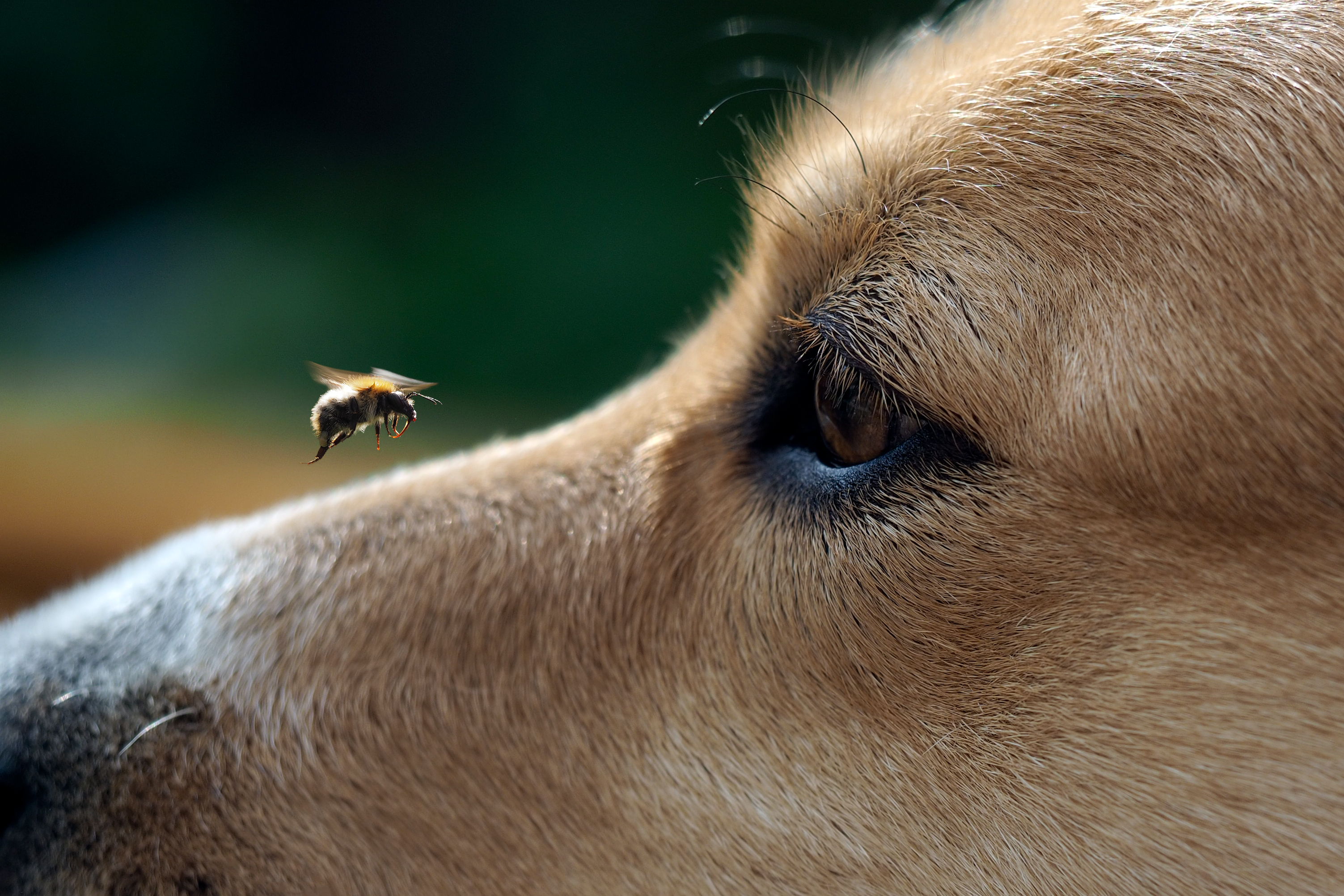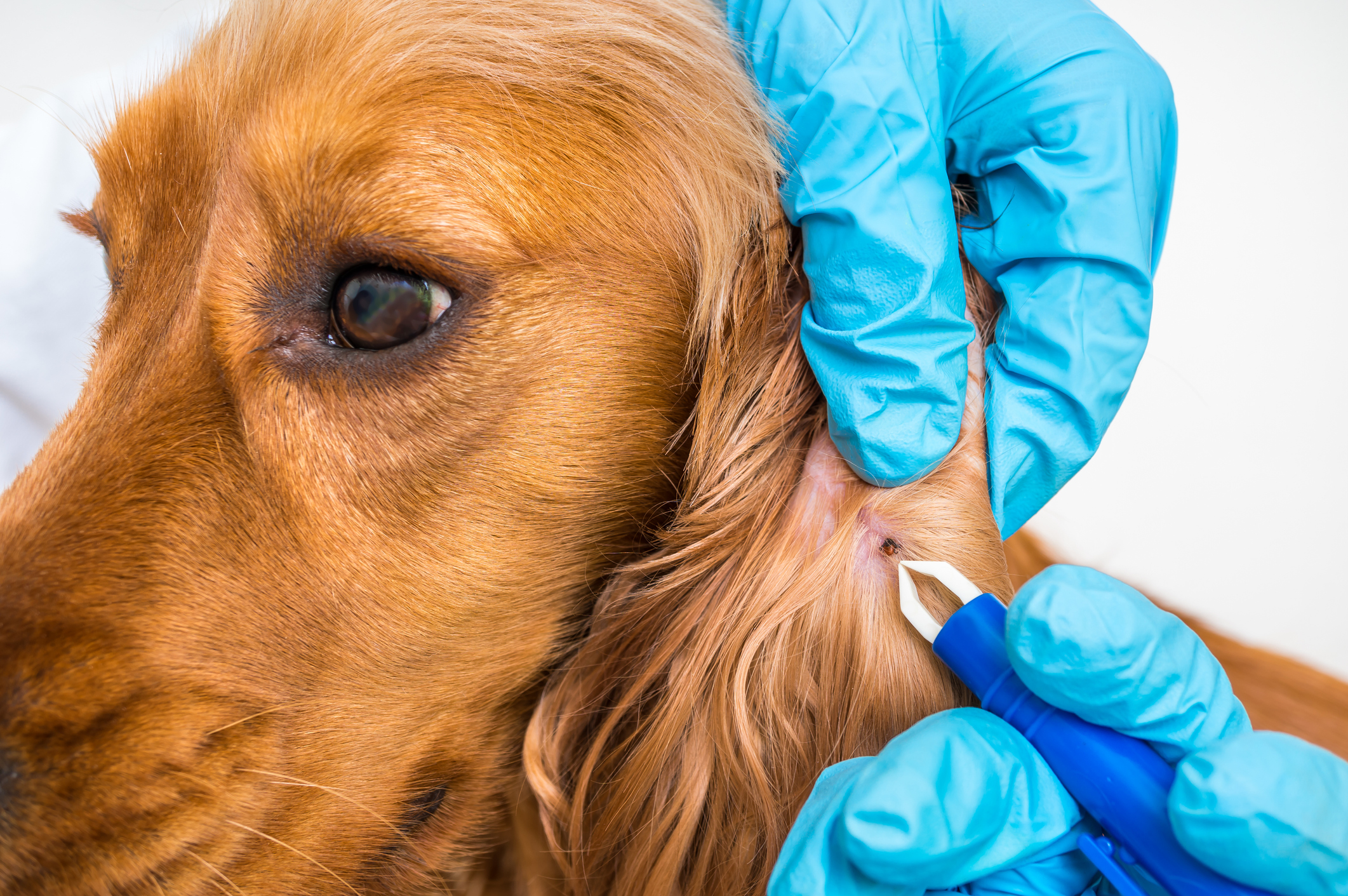
5 Insects That Are Harmful to Pets
Summer is here, and pet owners everywhere are itching to spend some time outdoors in the nice, sunny weather. Unfortunately, summer also means more insects will be out and might leave you and your pets “itching” in another way! Creepy crawlers are more than just a nuisance—they can actually be dangerous to our furry friends.
Top dangerous insects
Some insects pose a greater threat to cats and dogs than others. Bugs can carry diseases and parasites, and some pests even have venomous bites that can be life-threatening. It’s important to be mindful of the most dangerous bugs in your region and take steps to prevent your pet from being bitten or stung.

Here are five common insects that can be harmful to your pets:
- Ticks: Ticks are quite common in wooded areas, like you and your pup’s favorite hiking trail. These insects don’t fly, but they do have an impressive leap and can hop off of grass or bushes to attach themselves to your dog. Once they’re along for the ride, ticks will bite and bury their heads in your pet’s skin. Some ticks carry dangerous diseases like Lyme disease, ehrlichiosis and Rocky Mountain spotted fever—all of which can cause severe health problems in cats and dogs. It’s very important to remove ticks as soon as possible and have them tested for disease at your vet.
- Bees, wasps and hornets: Buzzing bees and their more aggressive counterparts can turn a fun summer afternoon into a scary and painful one for your pet. Many pets—especially dogs—like to swat and bite at bees flying nearby. Unfortunately, these insects will sting when cornered, resulting in painful swelling on the paws, body, face or even in the mouth! Some pets will even have an allergic reaction to bee stings, causing even more inflammation, itchiness and other unpleasant symptoms.
- Spiders: Many types of spiders can be found in your home and outside, and some are far more dangerous than others. Certain spiders have venomous bites than can quickly result in severe inflammation, pain and even neuromuscular damage. It’s important to read up on the dangerous spiders in your area and discuss them with your vet, so you know how to spot them.
- Mosquitoes: Mosquitoes have a notorious reputation as pesky pests, leaving itchy, swollen bites on humans and pets alike. Unfortunately, mosquitoes in certain regions of the world can be even more dangerous because they might carry parasites known as heartworms. These parasites can be transmitted when a mosquito bites your pet, and you probably won’t know they’re affected until much later. Heartworm is particularly dangerous in dogs, who can suffer from cardiovascular and respiratory damage. It can also affect cats, but it is not always as severe.
- Ants: Pets might like to chase lone ants around, but more than a few ants in a group can cause your pet harm. Both normal ants and fire ants can bite your cat or dog, causing inflammation and itchiness. Fire ants are particularly dangerous, since their venom can cause a more severe reaction that leaves your pet in pain. You’ll want to keep your eye out for anthills or large groups of ants outside and steer your pet away.
The importance of pest protection for our pets

Insects pose a number of dangers to pets—from a painful bite or sting and swelling to serious diseases like heartworm or Lyme disease. The best way to protect them against these dangers is to emphasize pest prevention at home.
Both cats and dogs can be protected against insects with pest control products and bug repellents. However, you’ll want to be careful. Not all insect products are safe for pets, and some options may only be safe for cats or for dogs. Above all, never use human insect repellent on your pets, since it can cause serious side effects and even death!
Aside from topical treatments and repellents to keep fleas and ticks at bay, you can also take steps to rid your home and yard of insects like ants, bees and spiders. You should also be cautious about these products, though. Many insecticides are extremely harmful to pets if they ingest or have contact with them. Avoid using bug exterminator products around your pets and don’t leave things like ant traps out for your pets to get into.
If your pet does get bitten or stung, make sure you treat the wound and contact your vet if you’re concerned about venom or allergic reactions.
By taking a proactive approach to pest prevention and protection, you can help shield your pet from some of the most dangerous insect-related health problems and make being outdoors this summer that much safer.


